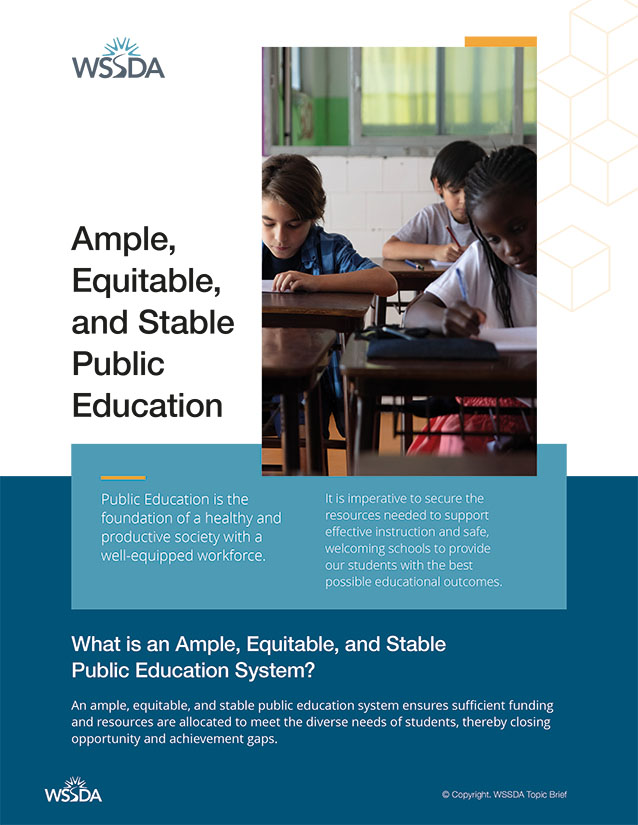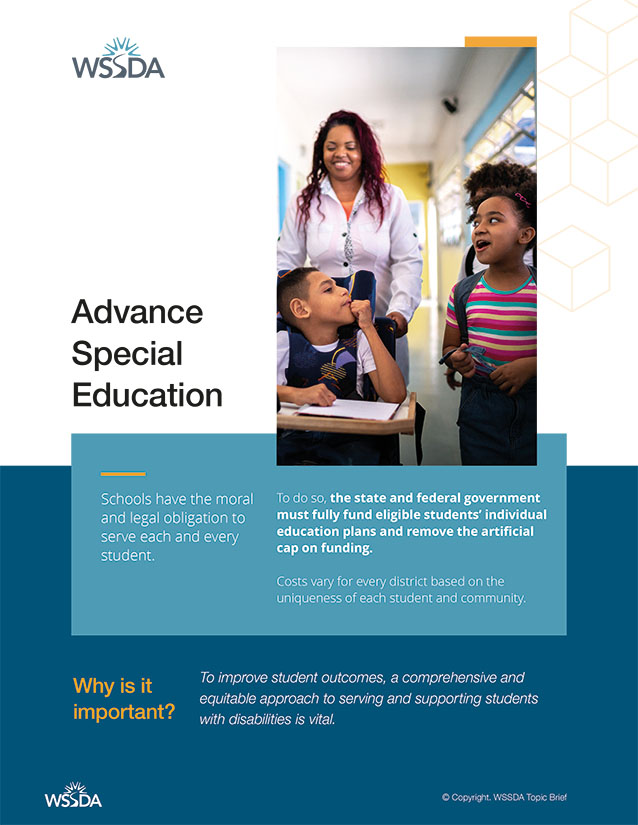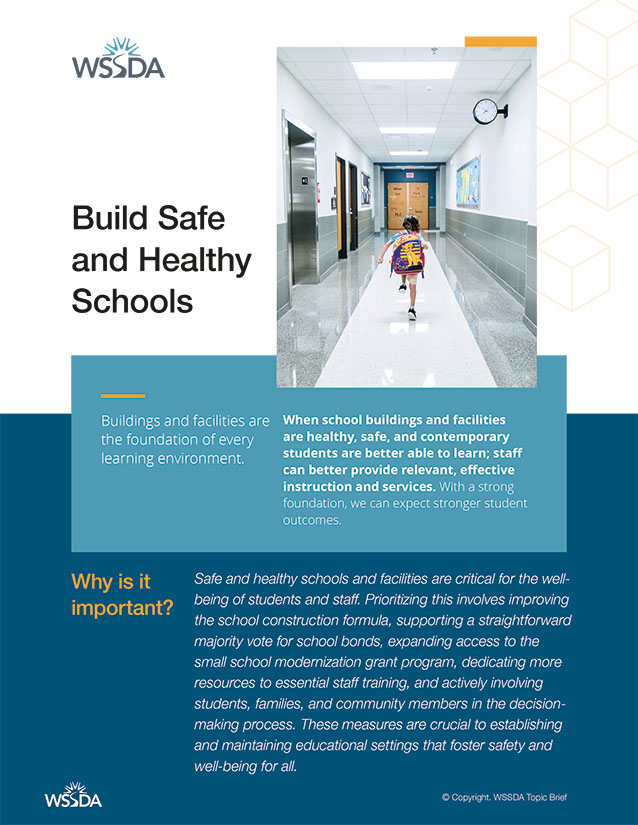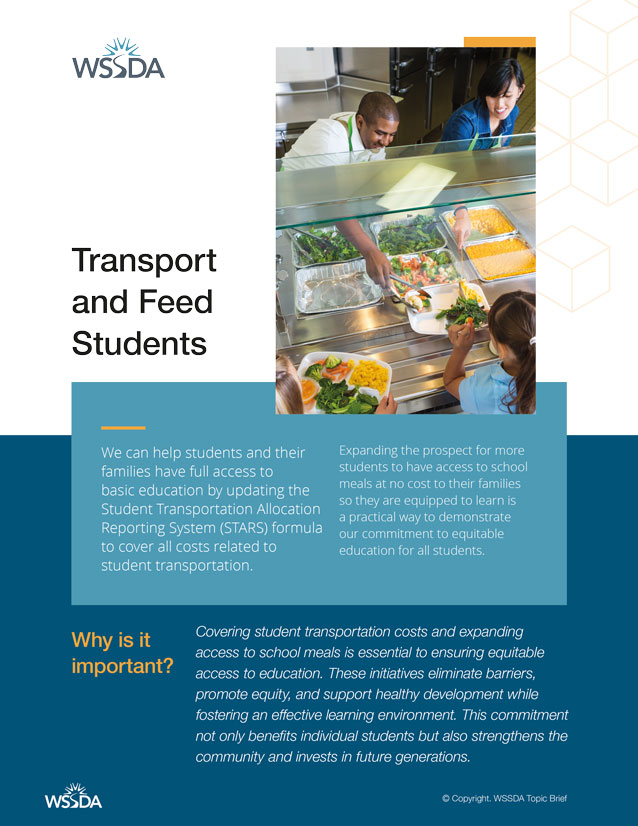Here you’ll find succinct, ready-to-use points and information on various K-12 education topics with the option to download as handouts. For questions or more information contact us at strategicadvocacy@wssda.org or 360-252-3011.
Here you’ll find succinct, ready-to-use points and information on various K-12 education topics with the option to download as handouts. For questions or more information contact us at strategicadvocacy@wssda.org or 360-252-3011.

Public Education is the foundation of a healthy and productive society with a well-equipped workforce. It is imperative to secure the resources needed to support effective instruction and safe, welcoming schools to provide our students with the best possible educational outcomes. An ample, equitable, and stable public education system ensures sufficient funding and resources are allocated to meet the diverse needs of students, thereby closing opportunity and achievement gaps.

Schools have the moral and legal obligation to serve each and every student. To do so, the state and federal government must fully fund eligible students’ individual education plans and remove the artificial cap on funding. Costs vary for every district based on the uniqueness of each student and community. To improve student outcomes, a comprehensive and equitable approach to serving and supporting students with disabilities is vital.

Safe and healthy schools and facilities are critical for the well-being of students and staff. Prioritizing this involves improving the school construction formula, supporting a straightforward majority vote for school bonds, expanding access to the small school modernization grant program, dedicating more resources to essential staff training, and actively involving students, families, and community members in the decision-making process. These measures are crucial to establishing and maintaining educational settings that foster safety and well-being for all.

Covering student transportation costs and expanding access to school meals is essential to ensuring equitable access to education. These initiatives eliminate barriers, promote equity, and support healthy development while fostering an effective learning environment. This commitment not only benefits individual students but also strengthens the community and invests in future generations.